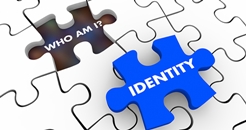 Grief - coping with loss of identity
Grief - coping with loss of identity
From a blog by a Moodscope member
Moodscope was devised by Jon Cousins, who suffers from depression from time to time and developed Moodscope so that he could manage his mood better. With nothing else readily available, he found the most established and robust scientific mood measurement test, the PANAS, and adapted and simplified the test. It gave him an uncannily accurate measurement tool to which he added the ability to automatically track and share the score on a daily basis. It worked and more and more people wanted to use it. A daily reminder and message followed and Moodscope was born.
The results have been amazing. Independent academic statistical research has proven it to work and research has shown that regular users experience an up lift in mood over 90 days. Could it help someone you know?
Some Moodscope members also contribute blogs. Leah, a Moodscope member, recently posted a blog about an aspect of grief that is rarely discussed:
A friend whose husband died over a year ago told me recently that she was experiencing an aspect of grief she had not been warned about. She knew she would grieve for him, but she was also grieving for the person she was when he was alive. She felt she had lost that person.
She knows she must live without him but how can she cope without the person she used to be. The loss of identity is very real and extraordinarily strong. She wanted to know how she can be anyone else but herself.
Some people say, rather than letting go, you can bring the past into the present. The person she lost; the person she was; those are all things that will still be a part of my friend as she goes forward. A connection to the person she used to be may be a healthy part of moving forward.
When we lose someone, we often feel we have lost this relational sense of self. We find ourselves asking questions like, who am I if not a partner, child, brother, sister, or even a neighbour?
After both my parents died, I wondered whether I was still a daughter and questioned my identity. I still define my life into when I had parents and after I did not. I found it hard, there was no one of the older generation to defer to, no parents no aunts or uncles. I felt quite lost until I thought I would always be a daughter as I would talk to them, write to them, and include them in my life.
My friend felt that now she was not a wife but a widow; her identity changed in that way.
Most of the literature tends to focus on grieving for the person who died, not the person who is left behind and finds their life and often themselves to be changed too.
Thought for the day: “It is one thing to lose people you love. It is another to lose yourself. That is a greater loss.”
Read Moodscope blogs here.
Retweey about this article:
From a blog by a Moodscope member, 09/03/2021